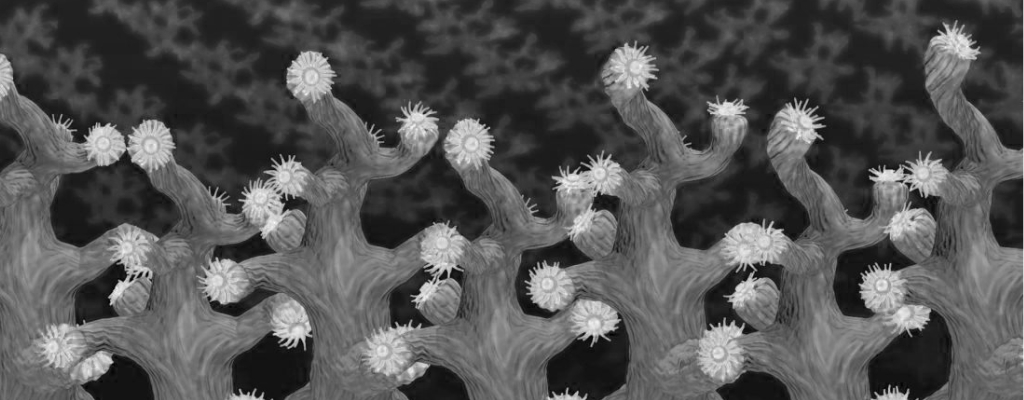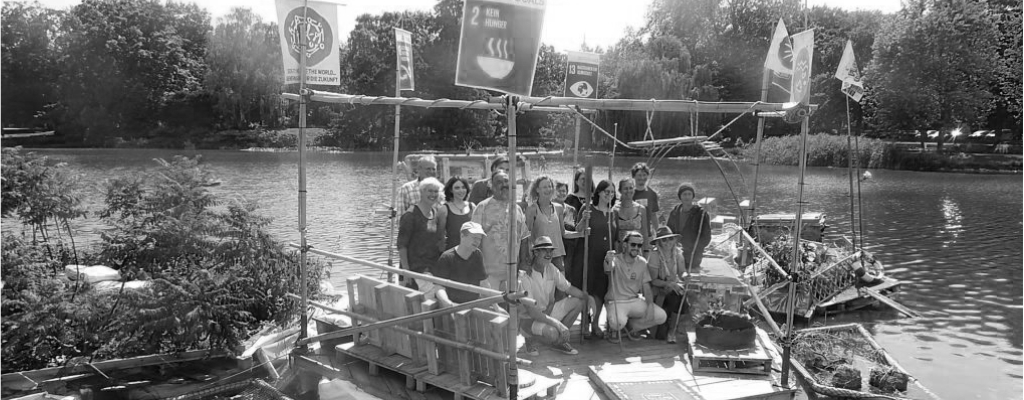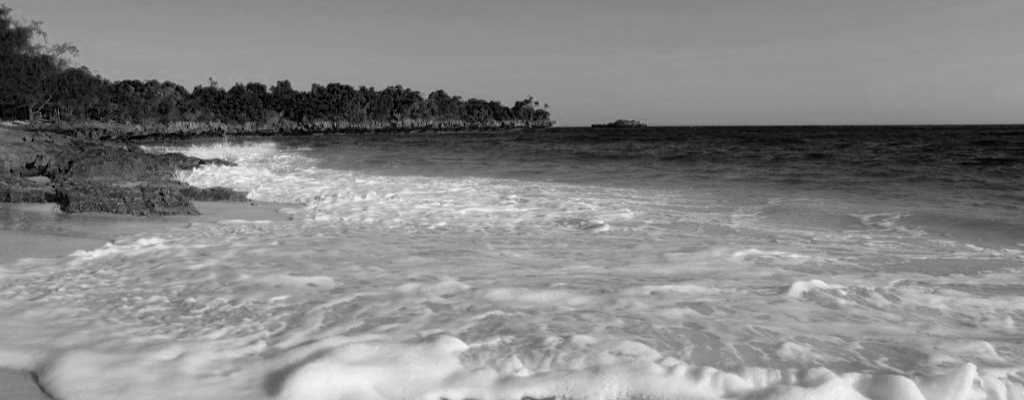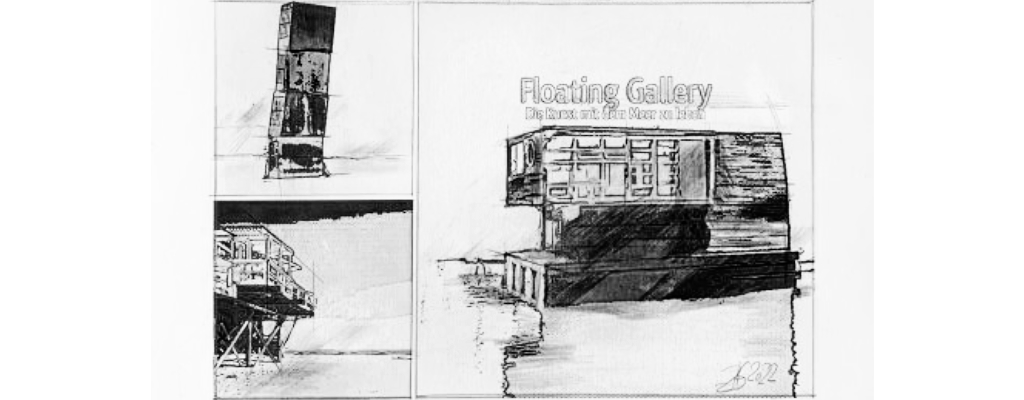THE OCEAN FUTURE LAB HACKATHON
About the Hackathon
The Ocean Future Lab Hackathon is a collaborative format for idea development and idea acceleration, organised by the Institute for Art and Innovation.
Within a limited time frame, it enables 7 young, passionate teams of entrepreneurs (selected from an open call) as well as the public and experts to find innovative and sustainable solutions in the fight against ocean issues.
The Ocean Future Lab Hackathon provides a space to push ideas forward, drive innovation and to create new value propositions. The best 3 ideas selected by the jury and the public will be presented at the Entrepreneurship Summit 2022.
About the Science Slam
And there’s more to come! Parallel to the Hackathon, a Science Slam will take place to share insights and scientific facts and provide inspiration to a broader audience.
Furthermore, the visualisations of the workshop narratives realised by Filmuniversity students will be shown.
Let’s change the world and create a more sustainable future together!
When? 21-23 September 2022
Where? Online on Slack and Zoom
Join a sustainable future! #saveouroceans #sdg14
About the 7 selected teams
With the support of our unique network of experienced experts from the start-up scene, the circular economy and scientific research institutes, (young) people will bring their ideas to fruition.
They can expand their solutions together with other participants/hackers. Furthermore, the selected teams will be coached by experienced mentors to sharpen their ideas into scalable solutions.
Judging criteria of the selected ideas will be based on four main sustainable areas such as:
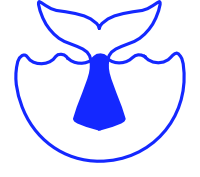
Impact
How much sea life can be saved? How much can the oceans be protected?

Reach
How many people can be reached with this idea?
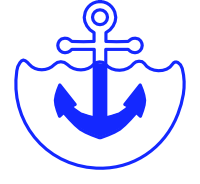
Implementation
How easy can the solution be realized and get adopted to a global scale?
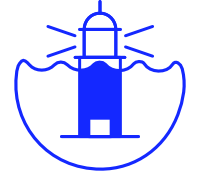
Sustainability
What are the ecological benefits of the idea?
Program
All science slam sessions will be live-streamed on the Institute for Art and Innovation Facebook page.
All times in CET, Berlin, Germany!
Science Slam Speakers
Cross-sectoral experts will share their insights, scientific facts and inspiration on sustainability, the ocean, climate change and water pollution with a wider audience.
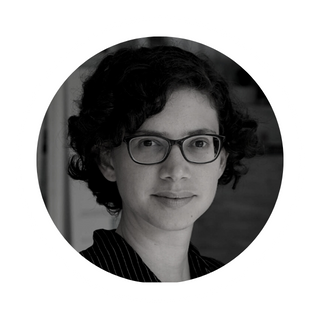
Laura Barth
Laura Barth got a Master’s degree in Physics in Florianópolis, Brazil. Currently, she is a Phd student at the Helmholtz Institute for Functional Marine Biodiversity (HIFMB). Her focus of research lies in complex systems, working on accessibility in Antarctica and network robustness applied to ecological systems.
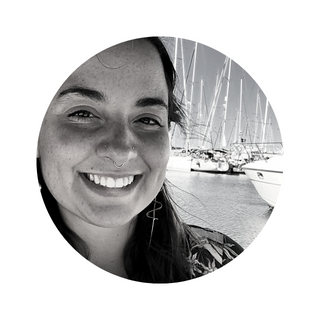
Soli Levi
Soli Levi is a PhD candidate at Helmholtz Institute for Functional Marine Biodiversity (HIFMB). Her expertise lies in coastal and marine governance, geographic information system technology, science awareness, education and local community engagement. The scientist’s aim is for emotion to be taken seriously and considered equal to objective knowledge in the field of science.
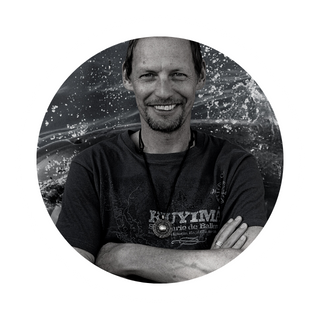
Fabian Ritter
Fabian Ritter turned his fascination for whales and dolphins into a profession by studying biology. In 1998, he co-founded the association M.E.E.R., where he is still active today. Fabian has been a member of the Scientific Committee of the International Whaling Commission (IWC) since 2003 and is considered an expert on whale watching as well as on dolphins and their protection.
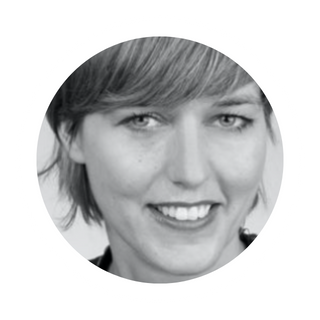
Louise Fuglsang
Louise Fuglsang is Lead Service Designer at Futurice. She supports organizations in creating lovable products, services, and brands. Using design thinking methods. Working in a lean, agile way. Bringing together both user-, business, and tech perspectives. And thereby aiming to create a positive impact for both users, organizations and society.
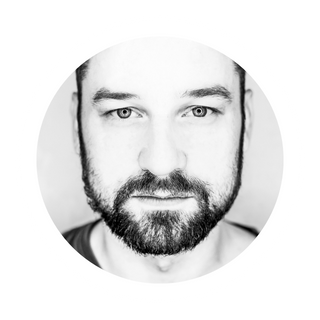
Manolo Ty
Manolo Ty is photographer, author and filmmaker from Berlin, Germany. His work promotes environmental and intercultural understanding and has been shown in more than 70 international exhibitions. Manolo Ty has been advisor for the United Nations Development Programme and is the author of several books.
Expert Mentors
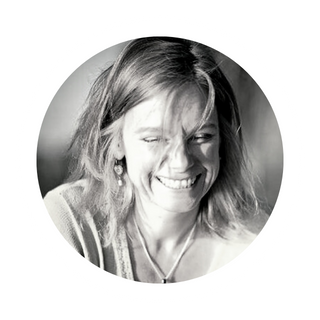
Tatjana Barzi-Vogt
Tatjana Barzi-Vogt is an IFAI board member and a communication scientist. Her expertise lies in agile project management and digital leadership. She will push participating teams towards great communication strategies for their project ideas.
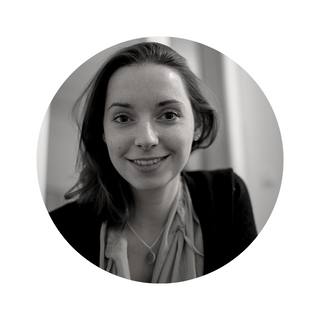
Laura Scherer
Laura Scherer is the founder of the organization Circu:Culture. Its purpose is to inspire young people to work in the circular economy. Laura wants to connect them with companies operating within the circular economy through educational experiences. Before founding Circu:Culture, she had been a consultant for international operational waste and recyclables management for several years.
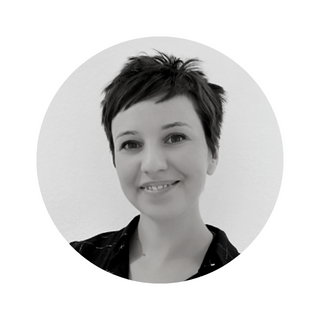
Buket Dönmez
Buket Dönmez is a UI/UX and visual designer with a background in interior design. She loves to bring together different design fields and experiment with them. During the hackathon, she will be available as a mentor for our participating teams to accelerate their ideas to the most.
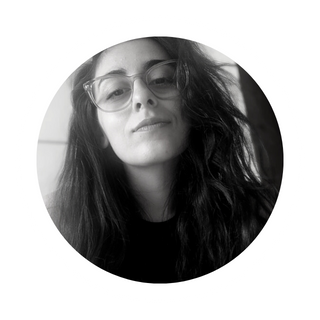
Konstantina Mavridou
Konstantina Mavridou is a Greek conceptual artist living in Amsterdam (NL). She is creating spaces of reflection, questioning our ways of thinking. Furthermore, she surveys how we act within the multiple social structures we live in. In her work, Konstantina is using asignifying semiotics by barely touching found and bought high-tech or other devices, creating an unexpected setting.
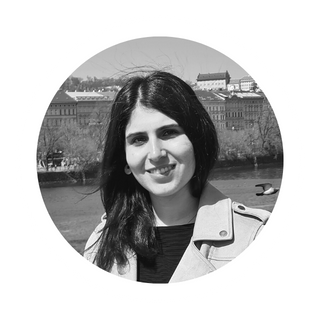
Marzieh Sasaninejad
Marzieh Sasaninejad studied mechanical engineering, and is also an expert in User Interface (UI) Design. She worked as a content creator in the marketing and advertising department. IFAI is happy to have her in the team as an editor and content creator.
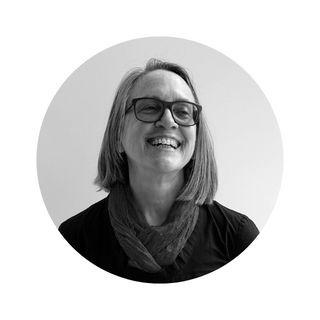
Carol Mancke
After 25 years in architectural design practice and teaching, Carol Mancke now works as an artist at the intersection of fine art and city planning. Her research practice project, Machina Loci, collaborates with individuals and communities to create thought-provoking interventions in situations and places of everyday life.
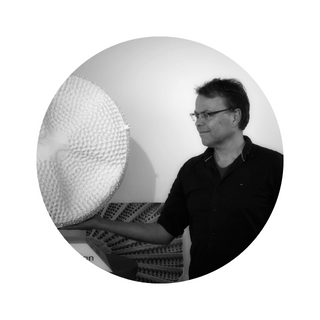
Dr. Christian Hamm
Dr. Christian Hamm is Head of Bio-inspired Lightweight Design at the Alfred-Wegener-Institut Helmholtz Centre for Polar and Marine Research. His expertise lies in Innovation, Bio-inspired Design, Technology Transfer, Marine Biology, Sustainable Design and Art.
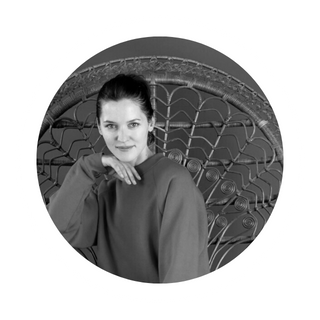
Mona Lüders
Mona Lüders specializes in content strategy, content pillars as well as data and information visualization. She supports our teams in visual storytelling, copywriting for social media , generating content ideas, and content production – creating unique content for good causes. She has been working as a content creator for several green startups in Berlin and Milan.
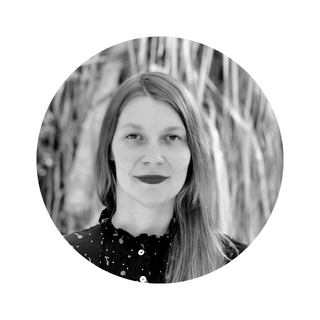
Dr. Ulrike Heine
Dr. Ulrike Heine is curator for the Marine Research Division at the German Maritime Museum – Leibniz Institute of Maritime History in Bremerhaven @leibnizdsm. As a cultural scientist, she has researched the mediation of climate change and curated exhibitions on artistic production in the polar regions.
Jury
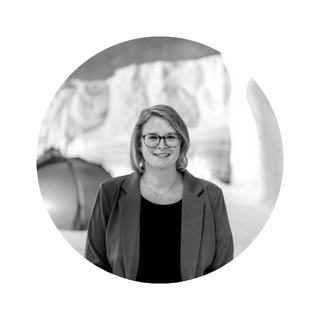
Dr. Neele Meyer
While studying at the University of Bremen, Dr. Neele Meyer discovered her passion for marine environments. She then specialized in marine geosciences and completed her PhD in marine geology. Over time, she realized that she not only finds research of great importance, but also likes to chat about it. That’s why she now talks about the climate and the sea every day.
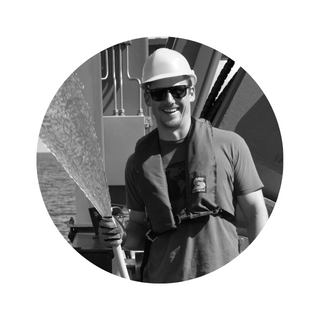
Dr. Marko Freese
Dr. Marko Freese is an aquatic biologist at the Institute of Fisheries Ecology in Germany. As a researcher, he is interested in diverse aspects of aquatic ecology with emphasis on diadromous fishes, especially the European eel. Besides management-related projects, his research may also be connected to ecotoxicology and fish physiology.
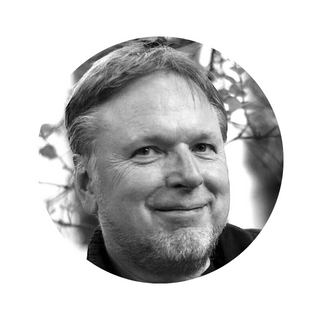
Joerg Altekruse
Joerg Altekruse has produced numerous films at the nexus of history, culture and science. He has an outstanding record as media strategist and project developer for public and private ventures. Inspired by his three adult children he founded Youth4Planet/Earthbeat, a social startup merging filmmaking with digital and political activism.
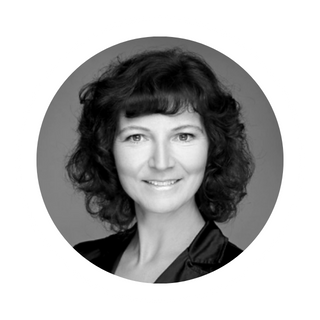
Nicole Loeser
Nicole Loeser is an international curator who works at the intersection of art and science, future studies, ecology, social design and sustainable practices. She is a university lecturer and researcher with transdisciplinary experience in digital transformation, organizational aesthetics, cultural sciences, science communication and the arts.
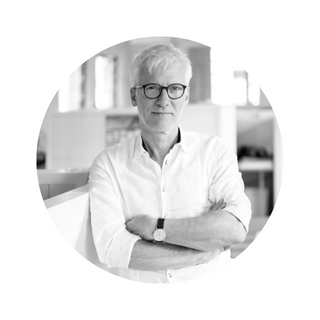
Michael Adler
Michael Adler is a political scientist and has been a journalist for 25 years. He was working for the member Magazin of an ecological NGO (Verkehrsclub Deutschland, fairkehr). He is an expert in shaping campaigns, political agenda setting, change management, branding, framing.
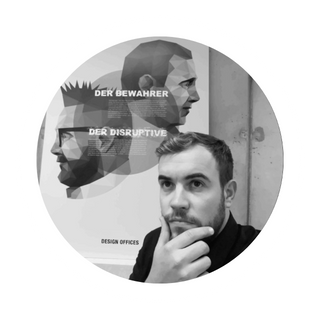
Matthias Goerres
Matthias Goerres is a marine conservationist, environmental manager and geographer. He currently designs innovative policy approaches for international cooperation and has work experience on five different continents. His expertise covers biodiversity, climate change, water resources, sustainable development, communications and event management.
Award Ceremony at the Entrepreneurship Summit
The Entrepreneurship Summit 2022 at the Free University Berlin brings together over 1.000 experts from all areas of entrepreneurship to show that business can be done differently and purposeful.
This time, the Entrepreneurship Summit aims to explore new creative economic paths and advocates for a different value system that promises more transparency, less marketing waste and clearly defined ecological goals: entrepreneurship for all.
About the Ocean Future Lab
The Ocean Future Lab project is a science communication project in the Science Year 2022 – Participate.
Our goal is to create an impact by inspiring and supporting everyone who is passionate to join the fight against ocean issues and foster their regeneration and restoration of biodiversity.
A sustainable future of the oceans is possible as everyone is a solution holder. Together, we have the means to act on this tremendous global issue.
The Ocean Future Lab Partners

The German Marine Research Alliance (DAM) was founded in 2019 by the German marine research community together with the federal government and the Northern German states. Its aim is to strengthen the sustainable management of coasts, seas and oceans through research, transfer, data management, digitisation, and coordination of infrastructures. To this end, the DAM develops solution-oriented knowledge together with its member institutions and ensures a target-group-oriented exchange of knowledge and dialogue with society.
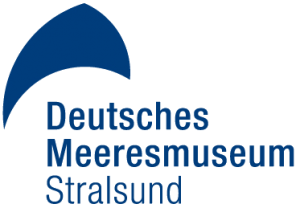
The German Oceanographic Museum Foundation in Stralsund is officially one of the cultural beacons in the new federal states. The museum awakens people’s interest in the nature of seas and coasts. It touches, moves, and makes people sensitive, thus contributing to changing their thinking and behaviour towards the natural environment.

The German Maritime Museum in Bremerhaven is a research museum of the Leibniz Institute for Maritime History and a place of education and dialogue. At the core of its work are maritime issues of relevance to society as a whole.
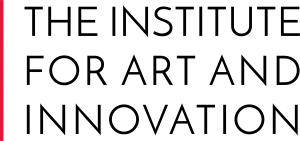
The Institute for Art and Innovation supports and promotes the interaction of art and innovation pushing forward social-ecological and digital transformation. It has been working in a multidisciplinary and cross-thematic way since 2017. In order to drive social innovation, a variety of co-creation and collaboration formats are applied to achieve complementarity between different disciplines and make different types of knowledge available. The focus is on the common good for future generations within the planetary boundaries.

